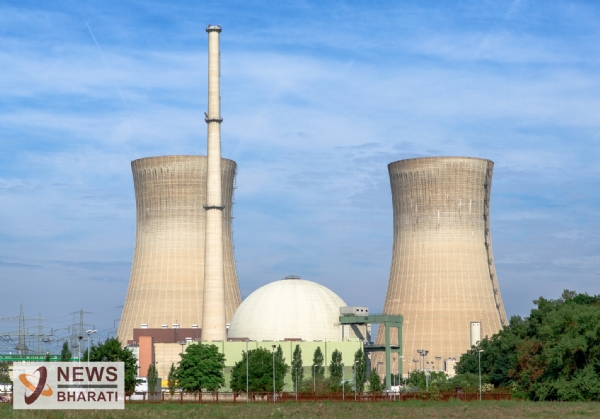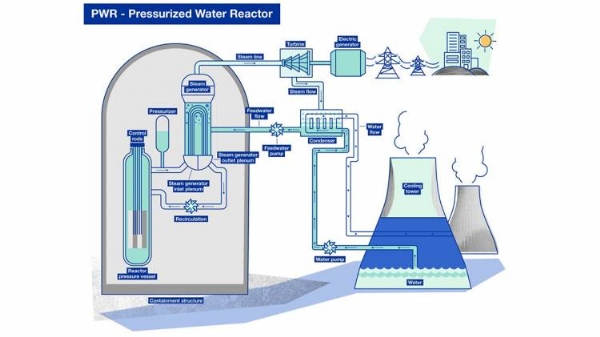Nuclear Energy- Neglected Green Source of Energy #1
Today, the world is facing climate change issues and also the problems created by coal based power plants. When the demand for energy, power is rising and we have to scrap coal energy, we must look at nuclear power as a substitute. Neglecting the immense power of atom would be a mistake. This is the first part of articles explaining the importance of nuclear energy.
Total Views |
In recent articles, we have read about climate change and also discussions around it. The COP27 also revolved around the topic of loss and damage happening because of climate change. Almost in every global conference, meeting the issue of climate change rises and the decision of keeping the 1.5°C targets alive is taken. Currently, we generate energy from limited resources. In such a situation we must start exploring various alternatives to create energy and atomic energy can prove to be a good substitute.

India is a developing country. India is a rapidly urbanising country. India is also transferring its public transport on electricity-consuming modes e.g., electrification of Indian Railways, installing new metro lines in cities etc. Since the last few days, the sales of EVs in also rapidly increasing in India. We know that, under Nationally Determined Contributions (NDC), India has decided to become net zero by 2070 as a long-term goal.
On this brief background, if India and its citizens are serious about achieving the net zero goal, then we must not neglect nuclear energy's power, capacity and importance. Else, it will be an unforgivable mistake. In history there are some accidents which occurred but, instead of getting panic, it’s time to correct mistakes that happened and improve the technology to use this resource.
How energy is generated in nuclear power plants
This is the fundamental point from which we can build an argument about nuclear energy. The process of energy production is complicated. Yet, we can simplify it for our understanding and look at the very basic principle of energy generation.
Also Read: India’s Grains Story
The fundamental principle of energy generation is the same which was discovered by Michale Faraday in the 19th century. When he passed a magnet up and down through a copper wire tube, it generated electricity. Today, this process is done by sophisticated generators, but the principle of using a magnetic field and a conductor remains the same.
Electricity is generated by rotating generator turbines. These turbines can be rotated with any form of energy; wind, steam, water current etc. In any thermal power plant, any type of fuel is used to heat water to create steam. This steam then rotates the turbines and generators to generate electricity. In coal-based thermal power plants, coal is used to create heat, which in turn converts water into steam and creates electricity.
In nuclear power plants, radioactive materials like Uranium, Plutonium, Thorium etc. are used. Most of the atomic power plants in the world use an isotope of Uranium called Uranium-235 or Uranium-238; which is also called enriched uranium or reactor fuel.
The process of, splitting atoms is called nuclear fission. This process releases a huge amount of energy in the form of heat, which is used to heat water and turn the turbines to create energy. There is completely zero carbon emission in this process.
Also Read: COP27- Way Forward for India
This is an extremely simplified explanation of the working of the nuclear power plant.

Importance of nuclear power plants
Nuclear energy is important due to various reasons. The most important reason is, it emits zero CO2 during the actual power generation. As we have seen in the process, there is absolutely no carbon emission in the power generation.
Today, when the world is facing two problems at the same time. First, is of course climate change and also the energy requirement. Developed and developing nations require energy to run their economies. Especially, developing countries require more energy to promote development. As seen in previous articles, it is estimated that Indi’s energy demands would increase in the near future.
Also Read: Households with electricity
Currently, fossil fuels (coal, oil, natural gas), water, solar, wind, tide and nuclear energy are the sources of energy fossil fuels lead to a large amount of carbon emission during energy generation. As per the Government of India’s Ministry of Power data, nuclear energy contributes only up to 1.7% of energy generation.

As the above picture shows, even in 2022 carbon carries the maximum energy load in India. Followed by solar energy, which accounts for nearly 14%. Other sources of energy stand below these two and nuclear energy account for only 1.7% of total energy production. The question is why only nuclear energy is important, given its challenges e.g., the disposal of hazardous radioactive waste, safety and security-related issue.
Also Read: Industrial and Demographic Disparities in India
As we can see, Coal is the working horse for the energy sector in India. If India decides to replace coal-based energy, then India needs a very strong substitute to bear the load of half of India’s energy consumption. Due to some natural advantages, nuclear energy can be seen as the perfect candidate. What are those natural advantages? And what is the main limitation of other sources like solar energy, wind energy, and hydro energy that restrict them from becoming the major players in energy production? We will read about it in the next article.


